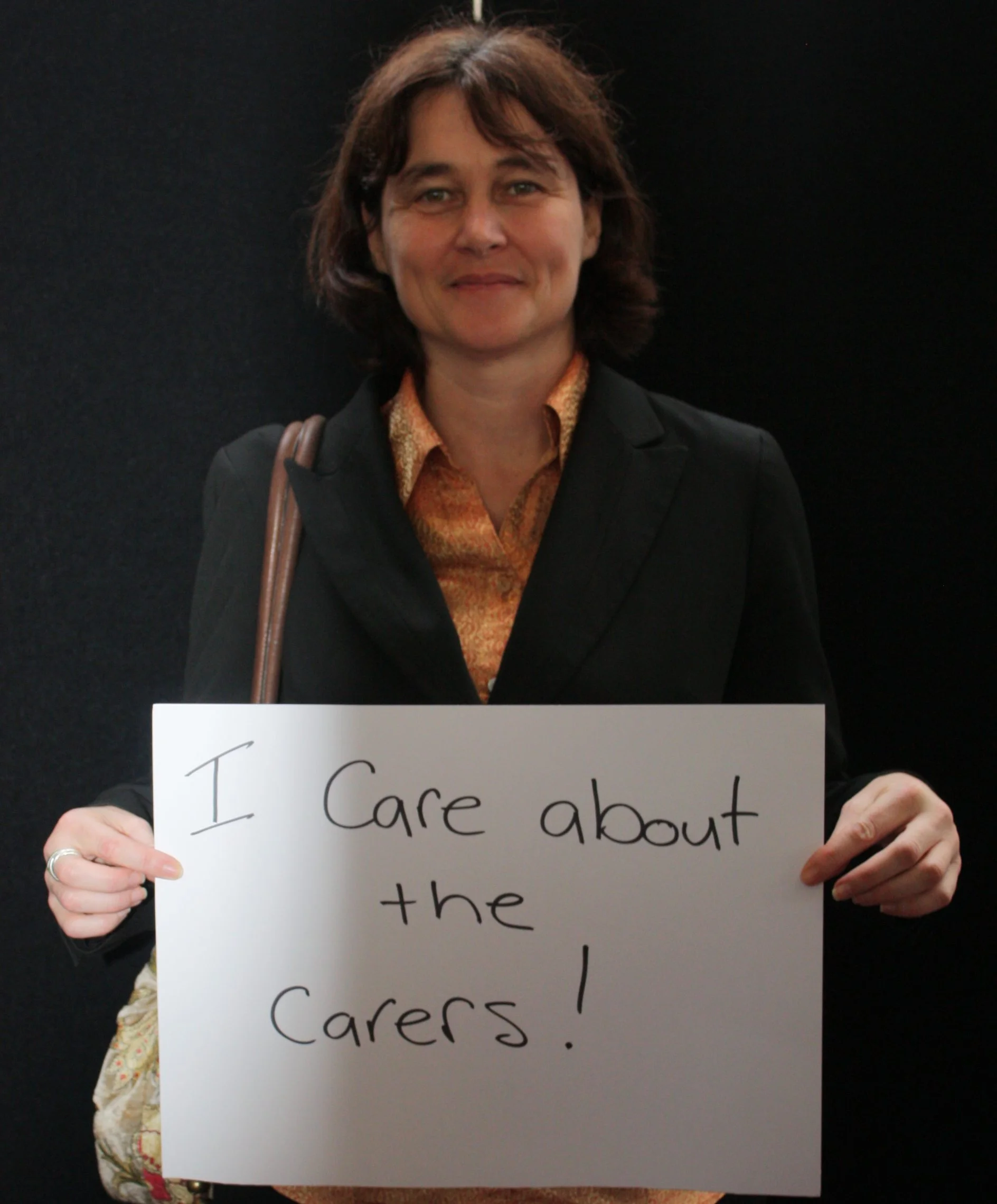The union movement's long history supporting workers includes driving last year's pay equity settlement, which substantially improved pay and conditions for New Zealand's caregiving workforce. Most support workers are women, a large worker community that strongly aligns with our country's 420,000+ largely unpaid family, whanau, and aiga carers, two thirds of whom are also women. Carers NZ co-founder Laurie Hilsgen got to know Helen Kelly in her leadership role for the NZ Council of Trade Unions, which stretched to supporting Carers NZ and the Carers Alliance during campaigns to boost awareness and support for family caregivers.
When Helen passed away after her battle with cancer, I attended her memorial service to pay tribute to her and to her legacy for ordinary workers and for women.
It was a beautiful service, held at Wellington's Michael Fowler Centre, which was packed with Kiwis from all walks of life.
Although Helen is no longer physically with us, her contributions to society and worker rights will be with us for years to come. I think she was an important person in the history of our country, not just within the union movement but across society. A leader who was tenacious, passionate, caring. A leader who happened to be a woman.
In current debates about issues such as legalising medical marijuana and euthanasia, I remember Helen. Part of her legacy was her frank sharing of views about such topics during her treatment for cancer and while she was dying. I liked that about Helen. She wasn't afraid to be real.
Some years ago Carers NZ and the Carers Alliance of 45 national not for profits launched our We Care campaign to encourage thoughtful leadership and decision-making for carers. The launch was held at Auckland's Aotea Centre and attended by many family carers, NGOs, MPs, and Helen.
We were collecting photo messages for the campaign at the launch and the image of Helen with her message is one of my favourites. We never intended for these to become historical photographs, but that's what they are: young carers, middle-aged women caring for multiple loved ones, and leaders, including Helen.
She was there representing the union movement, but she was mainly there to show solidarity with family carers, who were then fighting for a payment to recognise their often 24/7 roles supporting people with disabilities, serious injuries, frailty, or illnesses.
It's been a long battle for fair financial support for New Zealand's family carers, stretching from the courts in cases led by tenacious families and individual carers, and lobbying work by community organisations.
During National's nine years of government progress toward this goal of economic recognition for family carers was shamefully slow. Even now, only a few hundred family carers get Funded Family Care, brought in to pay up carers supporting people with complex disability support needs after years of human rights action taken by families.
The door then slammed on future such cases with some much criticised urgent legislation, and although the Government lost the human rights cases and introduced FFC, it won the outcome it seemingly wanted (paying as few carers as possible by minimising the number of carers who actually get the payment).
This is a payment that carers have to leap through hoops of fire to get, and even when they do, most get nothing like 40 hours a week, even if their role is 24/7. Those who do receive the FFC are paid minimum wage, well below what entry level support workers now get. That's not fair.
Spouses can't get this payment at all, even though these days there is a lot of fluidity about what constitutes the legal marriage status underpinning the term 'in sickness and in health'. Government has taken this definition literally, one might say cynically, to minimise public payments to spouses who are expected to provide round the clock complex care on the basis of love and duty.
With government, the social contract is out of date, and the principle of family caring for its own before turning to public funds does not take into account the size of today's mortgages, women's participation in study and paid work, longer lifespans due to medical advances, the fact that it's now common for women carers to support multiple ageing family members (including themselves; 40% say they have a disability while supporting others) plus all of the other realities of modern life.
We're hopeful the new government will listen to our call for better, fairer financial recognition for family carers, men and women alike. Especially since the last government appropriated $23 million a year for FFC and we believe less than a third of this actually reaches carers.
This campaign is partly about the injustices of a social system that doesn't adequately support carers, calling for improvements that reflect contemporary realities. We need family carers more than ever, so we should look after them thoughtfully ... as the value of their work dramatically offsets what we spend on Vote Health each year.
We also need to look at financial rights for all carers, not just those covered by the FFC in disability.
Middle-aged women are the biggest group of family carers, and their decision to provide substantial support to a loved one can come at the expense of their careers, ability to save for retirement, and their own wellbeing (two thirds experience depression, and it's an early mortality risk for older carers).
We want family carers to keep caring ... don't we?
When I think of the thicket of issues carers face to get a fair shake, I wonder what Helen would make of it all. It's nice to re-share her photo message for carers; she would have helped, I'm sure.

